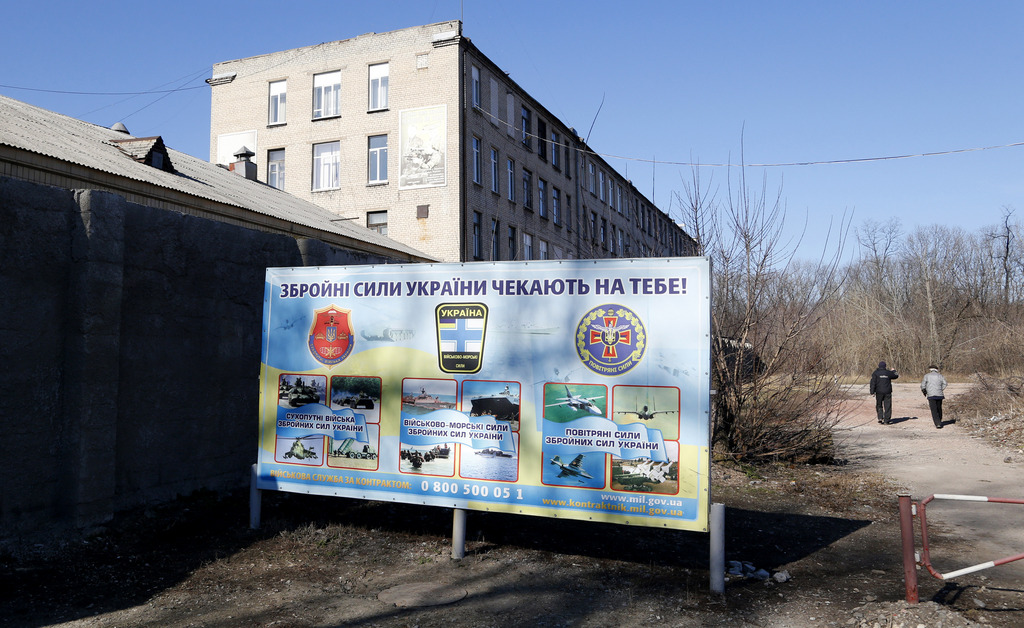Envoy reports stability in Ukraine

Following a three-day visit to western and southern parts of Ukraine, special envoy Tim Guldimann of the Swiss-led Organization for Security and Co-operation in Europe (OSCE) has called for decentralisation of power from Kiev to other regions, a strategy the Russians contest.
During a news conference in the Ukrainian capital, Kiev, on Wednesday Guldimann reported that situation in the regions he visited is “stable” but that people there tend not to trust state authority, especially on issues including policing and the use of force.
He added that local areas could fall victim to the slow process of distributing resources via Kiev, which is why decentralisation is needed.
In early April, the interim Ukrainian government adopted such a principle of “decentralisation of power and a major extension of the powers of local authorities.” Guldimann explained that if carried out properly, such reform should make it possible to “reconcile the interests of national and local communities”.
Russia, however, has advocated a centralised “federalisation” of Ukraine that it says would give more power to its various regions.
On Thursday, EU diplomats announced that Russia, the United States, Ukraine and the European Union would hold talks next Thursday in Geneva to try to negotiate an end to the crisis in Ukraine.
Divided
Ukraine is currently sharply divided between western, European-oriented regions and eastern, Russian-facing ones. Russian forces continue to occupy the country’s Crimean peninsula, which the OSCE’s observer mission has not been able to gain access to. However, a mission to mainland Ukraine by an OSCE observer delegation was approved by Russia and the other 56 members of the organisation on March 21.
Guldimann called the OSCE’s progress in the last six weeks “not too bad,” adding that the organisation’s decision making process has helped bring the Russians to the table.
“Due to its unanimous decisions, the OSCE allows the Russians dialogue within a context where they’re sure nothing is happening against their will”.
“Thanks to the presence of international observers, the situation in the east [of Ukraine] is under control or at least not escalating.”
Guldimann was appointed special envoy by Swiss President Didier Burkhalter who currently heads up the 57-member OSCE. In his role, Guldimann has taken four trips to Ukraine to observe the situation on the ground.
Russian relations remain
Switzerland’s leadership of the OSCE during the Ukraine crisis has been praised by world leaders and valued because of the country’s neutral status. But some have questioned continued Swiss ties to Russia in the wake of the Russian invasion of Crimea.
While other countries have sanctioned or limited relations with Russia and certain Council of Europe members have recommended isolating measures, the Swiss government has maintained all Russian connections for the time being.
Attorney General Michael Lauber told the Tages-Anzeiger and Der Bund newspapers on Wednesday that as long as Russia remains in the Council of Europe, Switzerland would need to treat Moscow the same way it does all other members.
In another development, the Le Temps newspaper reported that the Swiss had extradited an art dealer to Russia who was accused of illegally dealing valuable pieces of central Asian art.
Swiss federal judges maintained that although the prison conditions in Russia are internationally criticised, they do not constitute an obstacle to extradition and that there is no link between the Crimea crisis and judicial co-operation between Switzerland and Russia.

In compliance with the JTI standards
More: SWI swissinfo.ch certified by the Journalism Trust Initiative
You can find an overview of ongoing debates with our journalists here. Please join us!
If you want to start a conversation about a topic raised in this article or want to report factual errors, email us at english@swissinfo.ch.